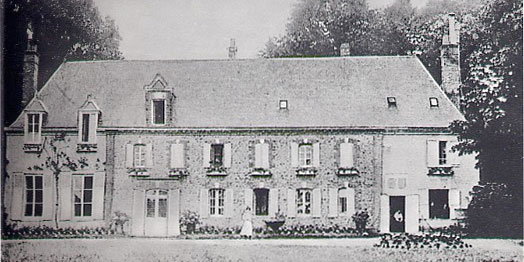
From Swann’s Way by Marcel Proust
“Léonie,” said my grandfather on our return, “I wish we had had you with us this afternoon. You would never have known Tansonville. If I had had the courage I would have cut you a branch of that pink hawthorn you used to like so much.”
And so my grandfather told my aunt the story of our walk, either just to amuse her, or perhaps because there was still some hope that she might be stimulated to rise from her bed and to go out of doors. For in earlier days she had been very fond of Tansonville, and, moreover, Swann’s visits had been the last that she had continued to receive, at a time when she had already closed her doors to all the world.
And just as, when he called, in these later days, to inquire for her (and she was still the only person in our household whom he would ask to see), she would send down to say that she was tired at the moment and resting, but that she would be happy to see him another time, so, this evening, she said to my grandfather, “Yes, some day when the weather is fine I shall go for a drive as far as the gate of the park.” And in saying this she was quite sincere.
She would have liked to see Swann and Tansonville again; but the mere wish to do so sufficed for all that remained of her strength, which its fulfilment would have more than exhausted. Sometimes a spell of fine weather made her a little more energetic, she would rise and put on her clothes; but before she had reached the outer room she would be ‘tired’ again, and would insist on returning to her bed.
The process which had begun in her – and in her a little earlier only than it must come to all of us – was the great and general renunciation which old age makes in preparation for death, the chrysalis stage of life, which may be observed wherever life has been unduly prolonged; even in old lovers who have lived for one another with the utmost intensity of passion, and in old friends bound by the closest ties of mental sympathy, who, after a certain year, cease to make, the necessary journey, or even to cross the street to see one another, cease to correspond, and know well that they will communicate no more in this world.
My aunt must have been perfectly well aware that she would not see Swann again, that she would never leave her own house any more, but this ultimate seclusion seemed to be accepted by her with all the more readiness for the very reason which, to our minds, ought to have made it more unbearable; namely, that such a seclusion was forced upon her by the gradual and steady diminution in her strength which she was able to measure daily, which, by making every action, every movement ‘tiring’ to her if not actually painful, gave to inaction, isolation and silence the blessed, strengthening and refreshing charm of repose.
Continue reading text online…


Write a Comment